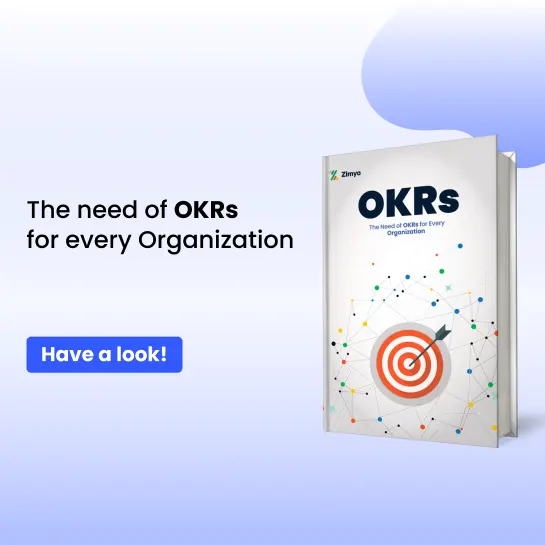Whether you’re in charge of hiring for a large company, seeking for new talent to run your organisation, or expanding your digital business, understanding the importance of employee benefits is critical. As competitive jobs with excellent pay are constantly in demand, today’s remote workers demand more from their potential employers.
The diversity of initiatives and perks that fall under the scope of employee benefits may amaze you. Anything you choose to provide will involve significant financial investment from the organization, so think about what you’ll get in return.
This blog will talk about everything you need to know about the value of employee benefits and how providing them can help your company. So, read on!
What Are Employee Benefits?
Any sort of compensation given to employees in addition to their regular salaries or earnings is referred to as employee benefits. The majority of people are aware of basic benefits such as paid sick leaves, vacation days, mental health support as well as health insurance.
Many employers provide some or all of these extra perks for free or at a discounted rate that is deducted from the employee’s paycheck on a routine basis. They are as follows:
- Employee Personal Loans
- Medical Emergency Loans
- Term Insurance
- Retirement Benefits
- Maternity and Paternity Leaves
- Tuition Reimbursement
- Accidental Insurance
- Childcare Benefits
Employee benefits packages have gotten increasingly competitive and diverse in recent years. In fact, the most successful firms provide flexible work hours, remote working possibilities, fitness facilities, food vouchers or refreshments, and other perks to their employees.
Why Are Employee Benefits Important For Remote Employees?
Work from home is here to stay.
According to a survey, the number of remote workers has increased by 140 percent since 2005.
According to a recent Gallup poll, 59 percent of U.S. employees who worked from home during the coronavirus outbreak want to continue working from home as much as possible after the public health restrictions are lifted.
It’s beyond time to reward remote workers with fantastic benefits. These advantages can help you boost staff engagement and, as a result, revenues.
The main benefit of remote work, according to 40% of people, is the flexibility of the schedule. According to this report, 72 percent of workers believe that increasing employee benefits contribute to higher job satisfaction.
Employees feel that having a greater range of benefits would boost their loyalty to their employer by 69%. In fact, they are more inclined to stay with a company if the benefits program is good, according to 78 percent of employees.
Rather than a pay raise, 79 percent of employees would choose new or extra perks. While good pay is vital, so are decent benefits. Employees can make or break your company. Therefore, if you provide a good benefits package, it will not only help you retain top talent but also attract the quality candidates every time you hire.
These are just a few of the many statistics indicating that employees require more support from their employers.
Why Should You Offer Remote Employee Benefits?
Let’s take a look at some reasons why you should offer benefits to your remote workers:
Increases Loyalty In Remote Employees
When you provide benefits to your employees, they are more likely to remain loyal to your company. According to one survey, having a benefits package is extremely or very significant to an employee’s commitment to their firm.
Employees desire the freedom to customize their benefits to fit their needs. According to a survey, 72 percent of employees believe that having the opportunity to tailor benefits makes them more loyal. Providing a limited set of benefits prevents employees from selecting what is best for them.
Employees who are more loyal are more likely to stay with your company. Therefore, employee retention can be aided by establishing or expanding a benefits program.
Improves Focus and Productivity
Employees’ ability to focus and be productive and creative can be harmed by a lack of benefits.
But how?
They may be concerned about issues in their daily lives, such as childcare, sickness, and financial issues. Employees who are concerned about these issues are not focused on their work.
This is supported by data. In fact, according to a report, 23% of employees are less productive at work due to money concerns. According to the same report, 58 percent of employees had lost sleep over childcare concerns. Employees who are sleepy or stressed are unable to concentrate at work.
You can provide stress-relieving benefits to your staff. Employees that can deal with concerns outside of work can be more present at the workplace.
Benefits have an impact on employees’ capacity to focus at work, according to 51% of those polled. However, another 51% agreed that benefits affect their performance at work.
Reduces Absenteeism
When your employees have benefits, they are more likely to show up for work.
Finances, family commitments, and health difficulties are three of the most common reasons for workplace absenteeism.
Your employees may need to perform financial errands. Employees will have fewer financial errands to run if benefits are provided.
According to a survey, 43% of employees feel that benefits have an impact on their frequency of work absences due to errands.
Seventy-four percent of employees have missed out on work opportunities because of family obligations. Flexible work arrangements, for example, can reduce the amount of time people lose from work due to family obligations.
When employees get health benefits, they are less likely to be absent due to illness. Employees who are happy with their benefits are less likely to prevent seeking medical help or postpone medical procedures.
Helps Attract Quality Candidates
You can boost your potential to attract prospects and hire new employees by providing benefits.
You may believe that a high salary is what draws employees. However, perks are just as vital as pay. According to a survey, 55% of employees are at most somewhat willing to take a job with a slightly lower income if it comes with better benefits.
In fact, employees are also more likely to accept a job offer if it includes health and wellness benefits (61%), as well as flextime benefits (75 percent).
How Does Zimyo Fit Into Your Employee Benefits Program?
Zimyo provides versatile benefit solutions to employers by utilizing it’s culture-first technology. This one-of-a-kind strategy allows us to meet you where you are on your well-being journey and progress alongside you and your company.
If you already have benefit programs in place, we can help you unify them through our HRMS tools and added benefits. With our employee-centric benefits, your business is sure to see improved personal and business outcomes.
Also Read: Employee Benefits: Choosing The Best For Your Staff






